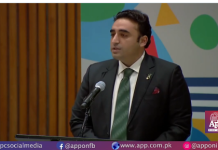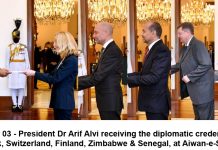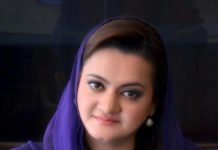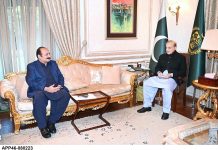ISLAMABAD, Oct 26 (APP):The experts at the Islamabad Policy Research Institute (IPRI) roundtable conference as part of its Grand National Dialogue series on Wednesday said Pakistan must revisit its obsession with western liberal political governance, and chalk out an indigenous way out.
The theme of the roundtable was: “National Identity and Cohesion – Unity in Diversity”, a news release said.
Owais Ahmed Ghani, former governor of Balochistan and Khyber Pakhtunkhwa; Dr. Qibla Ayaz, Chairman Council of Islamic Ideology; Prof. Dr. Zia-ul-Haq, Director of General Islamic Research Institute at International Islamic University; and Prof. Dr. Arshi Saleem Hashmi, Head of Department Peace and Conflict Studies, National Defence University spoke on the occasion and dilated upon the trajectory of evolution in Pakistan, and as to how the nation has carved out an identity in diversity.
IPRI President Ambassador Dr. Raza Muhammad and Director Research Brig (R) Raashid Wai Janjua presented the welcome note and conducted the session.
The speakers pointed out how Pakistan-iat (nationalism) has evolved all these years, the problems that the nation-state faced in its infancy, and what are the challenges that it is confronted with in changing times.
The ethnic-lingual factor, the radicalization of the society, the stress on Islamization and laws about belief and religion, as well as the cross-currents of liberalism and modern statehood were looked at at length, to propose recommendations for crafting a more viable national policy.
The intellectual debate crept into the territory of policy-making of consecutive governments and was closely scrutinized as to where the nation has blinked, and what factors are behind the decay and stagnation of the society.
The aspect of nation-building remained under focus, and pointed examples were cited to establish the link needed to better reorient future policies. The cross-currents of national cohesion, and how to ameliorate the sense of deprivation among the backward areas of the country, especially Balochistan, by furthering socio-economic progress were explored at length.
The question of governance and the framework of the federation, unilateral rule, bicameral structures, and proportional representation were studied. It was stated that diversity cannot be at the cost of unity, and the concept of a Republic state is more suited than a democratic or a quasi-religious edifice.
The recommendations of the experts underlined that it was noted that minus ideological definition, Pakistan could not survive as a nation-state. Moreover, the proportional representation system for Pakistan was stressed and endorsed to do away with systematic political corruption and degeneration of society.
Pakistan should moderate as a Republic in essence sans stress on democracy. The rule of public representatives should be subordinate to a nationally recognized framework of the Principle of Policy (called a Republic).
The experts suggested that Pakistan was not a poor economy, but rather a poorly-managed economy. The reform focus should be on the political system. Rule of law was a must to discipline and groom society for success.
They also demanded to check corrupt practices and eliminate them. Insulate national security and good governance and free it from the whims and wishes of leaders. “Pakistan to be a republic and not a democracy. Disparity leads to creating a discourse in radicalism.
Evolve society on organic lines. Balochistan is a society in transition and there is no future for sub-Baloch nationalism. A National Council of State is needed for governing hierarchy. Pakistan needs a new social contract (constitution),” the experts said.














